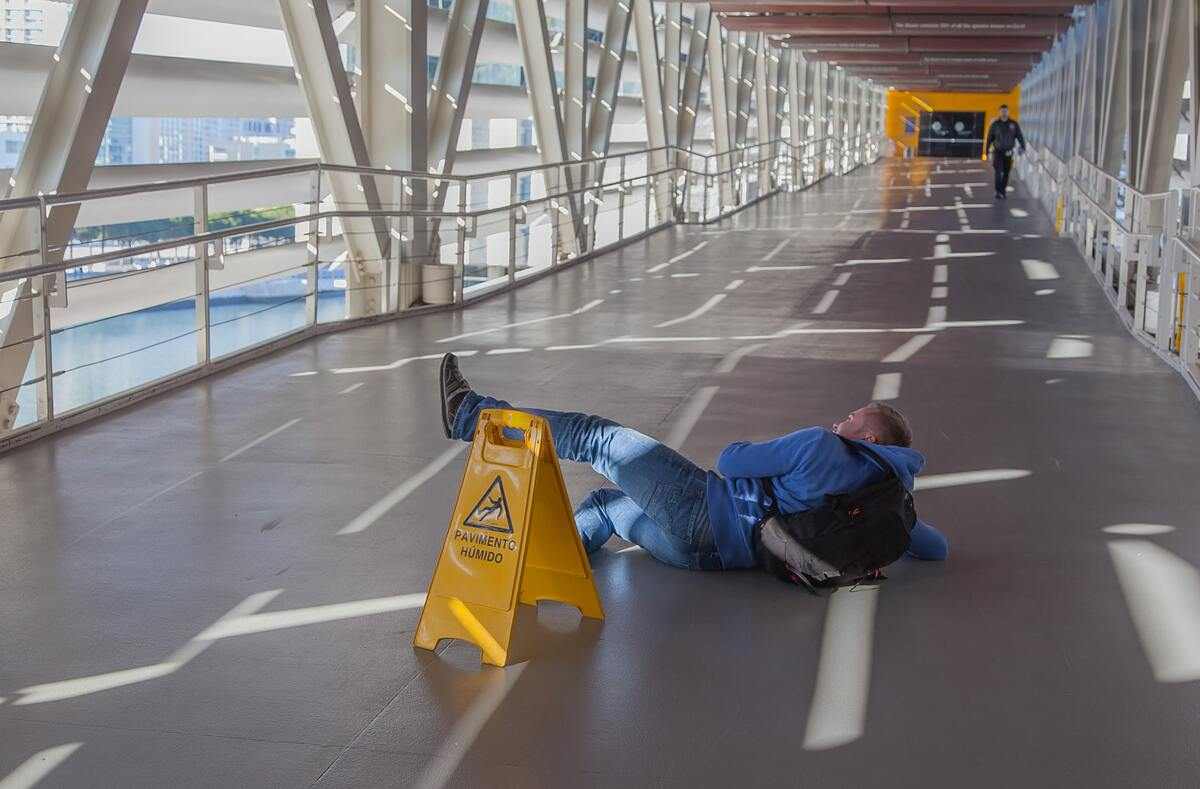If you are the victim of a slip and fall injury in Washington State, you may be entitled to compensation for your injuries. This is especially true if your accident occurred in a place where a property owner was negligent. But whether you decide to settle with an insurance company or fight for your rights all the way up the courthouse steps, Washington’s laws governing slip and fall claims apply. One of the most important rules is Washington’s statute of limitations for slip and fall injuries.
In this article, the Brett McCandlis Brown & Conner team will help you understand the importance of filing a slip and fall lawsuit within the statute of limitations. We will explain why time limits apply to slip and fall cases and why it is important to hire trusted counsel as soon as possible after your injury.
Understanding the Statute of Limitations for a Slip and Fall Injury
Time Limits
You may wonder if you have a slip and fall injury: What is the statute of limitations in Washington State? A statute of limitations limits the time you have to file a particular claim. In Washington, the statute of limitations for slip and fall lawsuits is the same as the statute of limitations for most other personal injury claims. The Revised Code of Washington section 4.16.080 states that a claim for “injury to the person or rights of another… shall be commenced within three years.” This means that you have three years from the date of your accident to file a lawsuit.
Practical Considerations
From a practical perspective, filing your slip and fall lawsuit sooner is always better. Yes, it’s important to stay within the statute of limitations. But the sooner you file your claim, the fresher your evidence will be. For instance, witness recollections are far more clear soon after the accident than two or three years later. You might also collect more or better evidence if you file a slip and fall claim while the specifics of the injury are still very fresh in your mind. Since your lawyer is so familiar with the process, they are your best chance at getting the best recovery possible before the Washington personal injury statute of limitation expires.
Notification
Even if you do not file a lawsuit, you need to notify any other parties involved about the injuries you sustained. This can mean telling a property owner the specifics of where you slipped and fell. It can also mean disclosing details of your injuries.
Speaking with experienced counsel sooner than later will help you stay within the three-year limit to file your claim. At Brett McCandlis Brown & Conner, we can help you get the slip and fall claim process started sooner to help you get the best result possible.
Expiration
If you attempt to file your personal injury claim after the statute of limitations expires, you are likely to find yourself out of luck. Even a grossly negligent property owner can get a case dismissed if the slip and fall injury plaintiff files their lawsuit after the statute of limitations expires. Do not let yourself be one of these unfortunate, injured people who miss out on the ability to obtain their rightful recovery.
In exceptional circumstances, the statute of limitations clock may pause and allow you more time to file your complaint. However, you should not count on any exceptions applying to your case. Be sure to seek counsel and be prepared to file a lawsuit as soon as possible after your accident.
Exceptions
There is only one exception to the statute of limitations on a personal injury claim, and that is when a minor child suffers a personal injury. In that case, the statute is tolled, or paused, until the child turns 18. In practice, this means that the injured child would have three years from their 18th birthday to file the lawsuit.
It’s difficult to imagine any circumstances under which a victim of a slip and fall would not be able to file their claim within three years. However, there are medical circumstances, like a coma, which can make such a scenario possible. These circumstances are especially true where a slip and fall accident victim has no next of kin to file a lawsuit for them. In that case, the court may use its discretion to toll the statute of limitations for that slip and fall injury claim.
There are other circumstances where an injury might not present itself immediately, and in those instances, the court may stop the statute of limitations clock. The type of injury that takes a long time to manifest is more common in medical malpractice cases than in slip and fall cases, but it might still apply in rare instances.
Consequences
When you file a slip and fall lawsuit, you are letting the world know that a person or business failed to maintain safe conditions for visitors. This puts the public on notice and gives the property owner incentive to behave better in the future.
If your lawsuit is not filed in a timely manner, the respondent will move to dismiss the case. If your statute of limitations has already expired, their motion will be granted and your lawsuit will likely never see the light of day again. This has two unfortunate repercussions. First, you won’t get any money to help with the bills you have had to pay for medical attention and the lost wages you suffered because of your injury. Second, the property owner just got away with negligence and has no motivation to behave better in the future. Therefore, they might hurt another unsuspecting customer in the future.
The Brett McCandlis Brown & Conner Difference
The attorneys at Brett McCandlis Brown & Conner have over 40 years of legal experience representing personal injury victims. When you hire our legal team, you can stop worrying about medical bills, lost work, insurance adjusters, and future expenses—not to mention stressful deadlines.
As you concentrate on your physical and emotional recovery, we focus on your financial recovery. Contact us for a free consultation today to find out how we can help you after a slip and fall accident.


